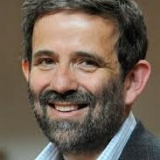The Climate conference in ParisDecember 2015 is described as “last chance” or “5 to twelve” but in the climate arena there is a risk that we have over-utilized the doomsday vocabulary already in the run-up to Copenhagen, 2009 the better part of a decade ago. For those who have worked on climate issues for several decades it poses a special challenge to calibrate language.Words like “immediate” need careful explanation. Think of a super tanker with so much inertia that it takes a full hour to stop in an emergency—and in our case it is not an hour but decades—damage is probably quite gradual and yet there is literally no time to delay. Activists feel that we have to use every opportunity to further climate change policy because not much has been achieved to date and December 2015 does represent a special opportunity but clearly it is an illusion that any one particular meeting will cut the Gordian knot and result in a full international treaty with appropriate policies for all the countries of the world. The UNFCCC has yearly conferences of the parties (COP) but the expectations have not been this high since Copenhagen which was later described as a big failure. Politicians are keen to avoid a repeat and so expectations have been lowered. We are no longer seeking a grand agreement but a set of “Intended, Nationally Determined Contributions”, INDCs. Both the qualifiers “intended” and “nationally determined” raise issues related to the design of a treaty intended to provide a global public good. Normally we need to make sure that commitments are verifiable, controllable, add up to a sufficient aggregate goal and that there are incentives to deliver on the commitment.
Files and links
Request a publication
Due to Copyright we cannot publish this article but you are very welcome to request a copy from the author. Please just fill in the information beneath.
